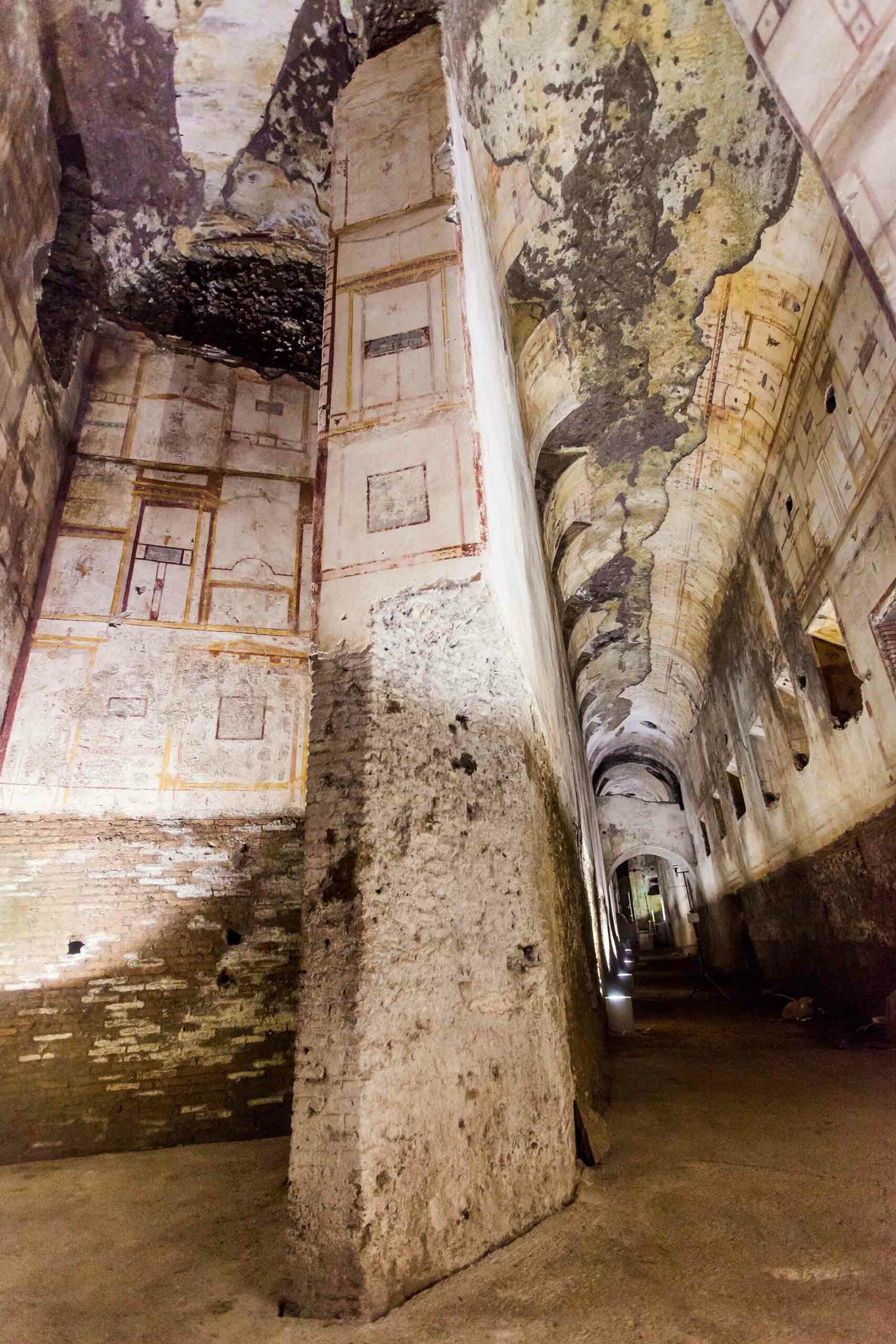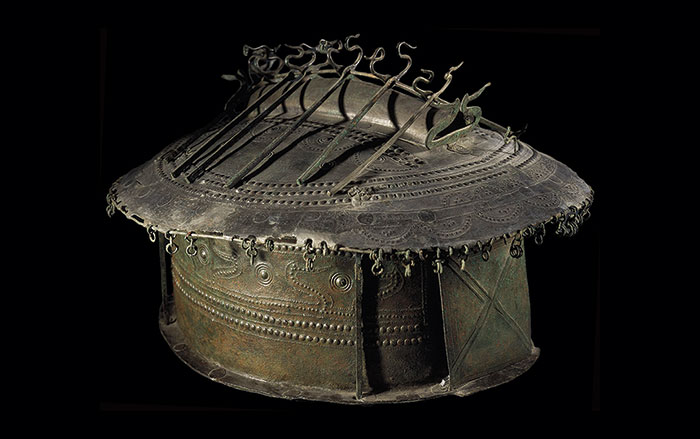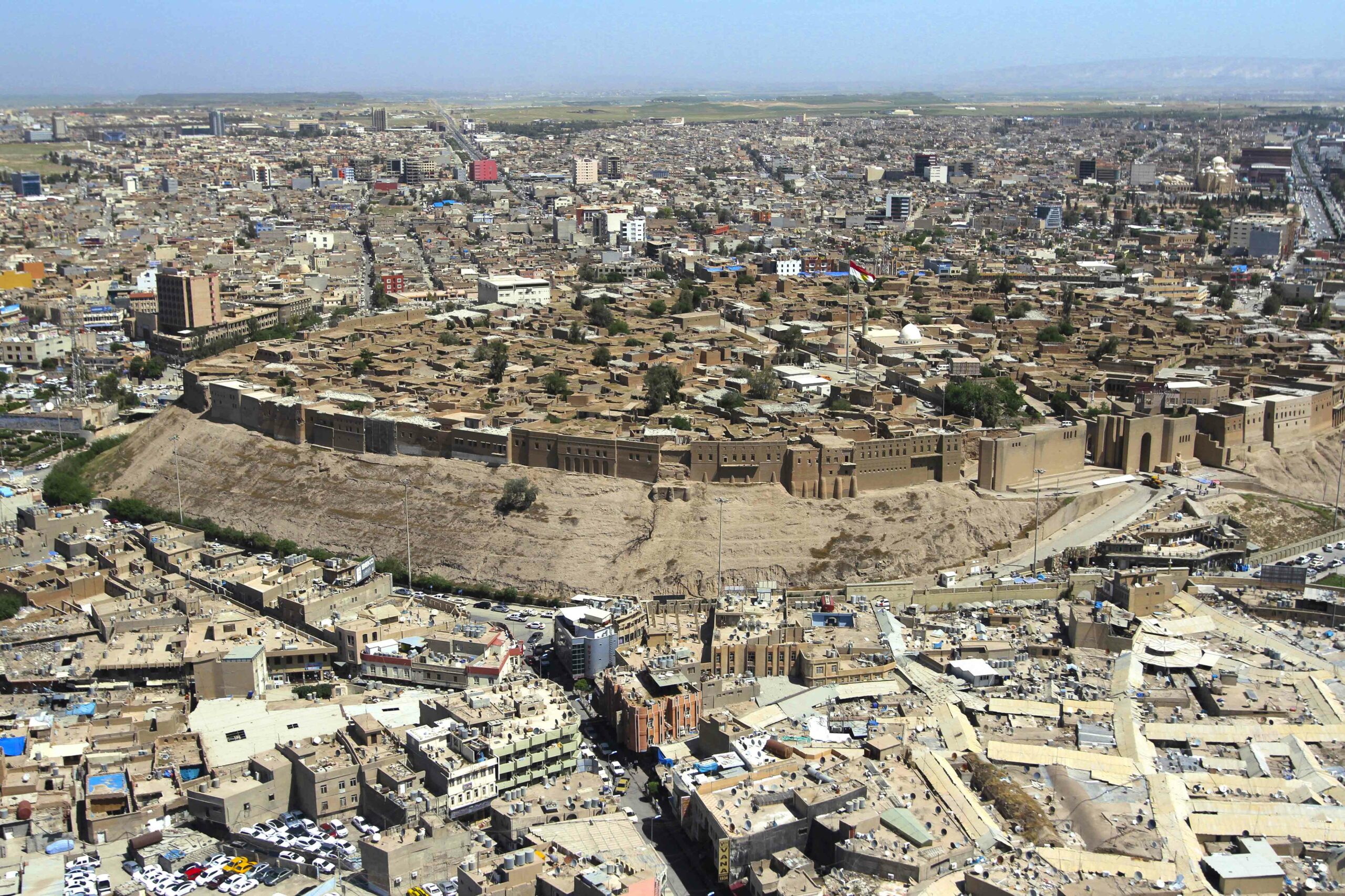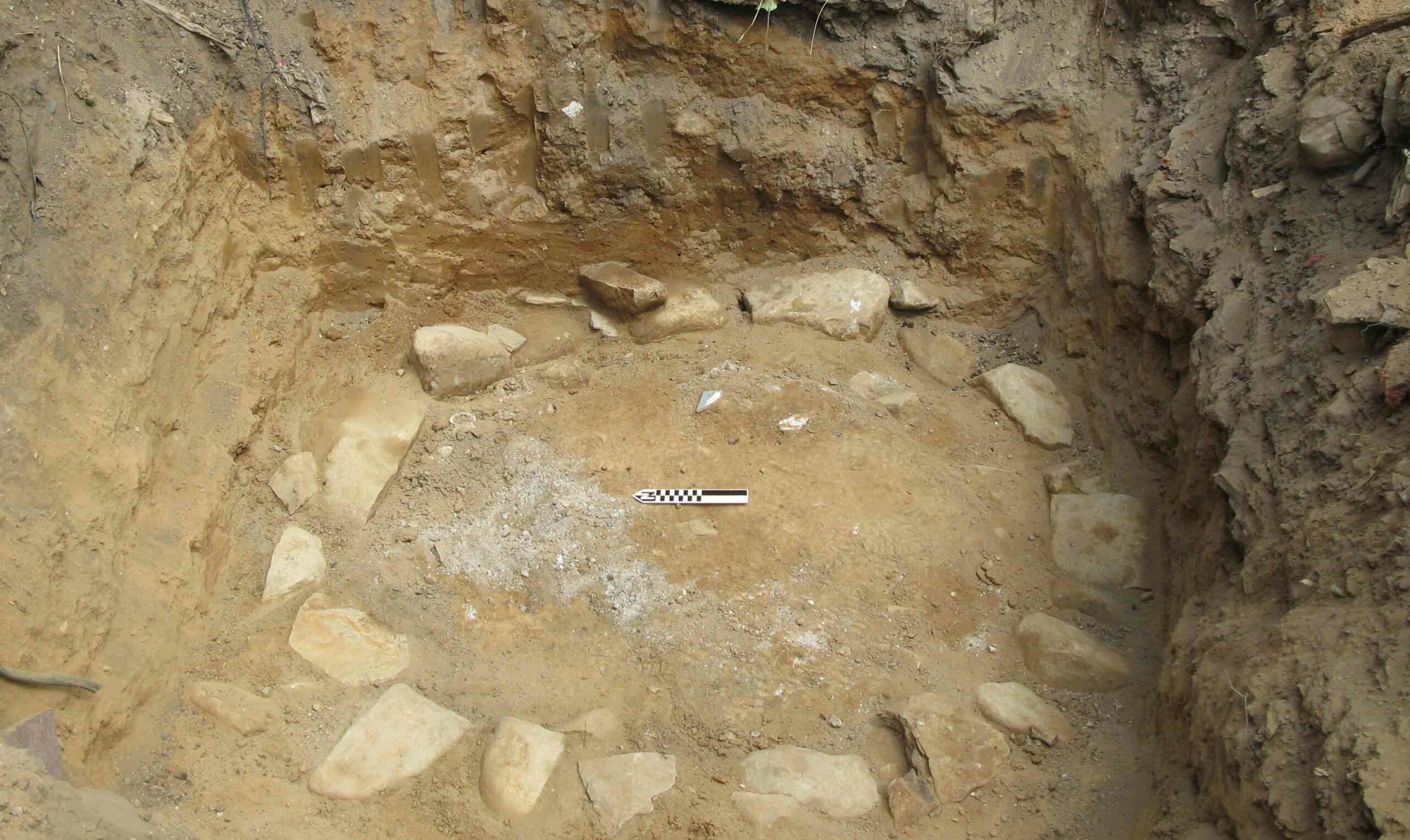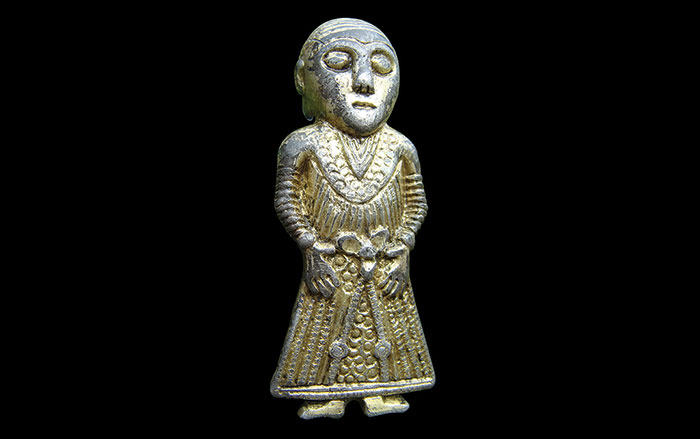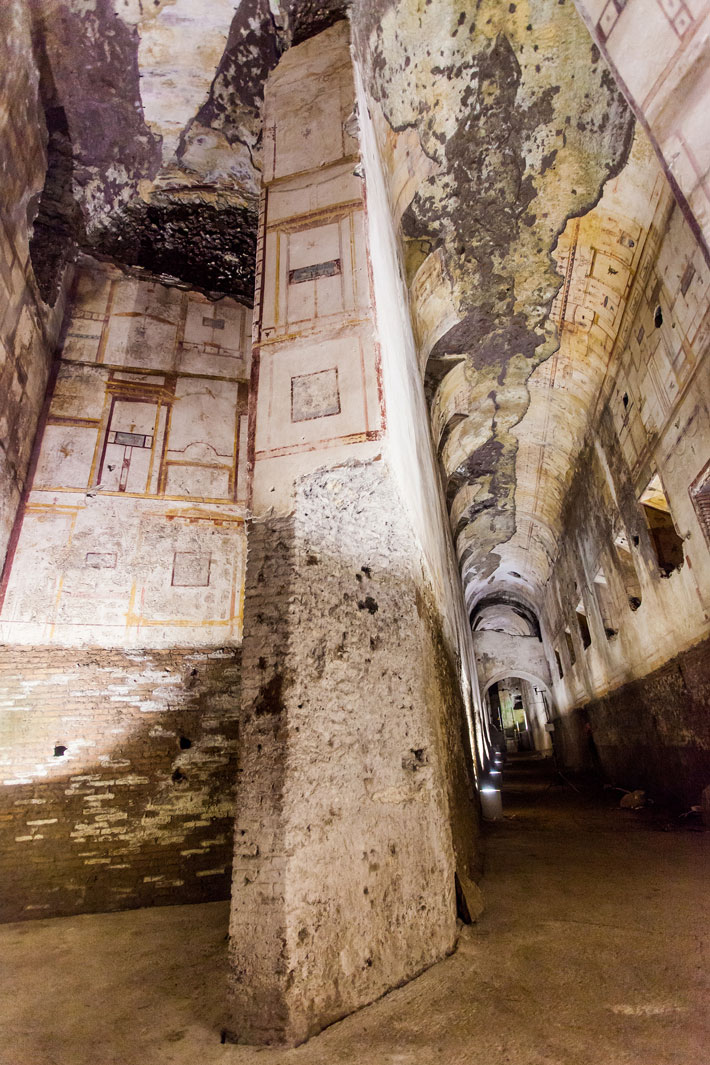
The Domus Aurea, or “Golden House,” is one of the most important monuments in Rome, but it is also at great risk. Built by the emperor Nero between A.D. 58 and 64, the staggering property in the heart of imperial Rome might have sprawled across as many as 300 acres, though its true extent is difficult to judge. The main villa of the complex has more than 300 rooms, including an octagonal dining room with a revolving domed roof, walls inlaid with jewels and gold, ceilings covered in mosaics, and brightly colored frescoes on nearly every wall and vaulted ceiling. But for all its splendor, the Domus Aurea has been closed since 2005 for safety reasons—and a ceiling vault collapsed in 2010. Persistent problems with drainage and moisture threaten both its structural stability and its decorations. Recently, the archaeological superintendency of Rome embarked on the last phase of an ambitious restoration project. “We hope,” says superintendent Mariarosaira Barbera, “that the Domus Aurea can be visited again by 2018, and that it will last another 2,000 years.”


